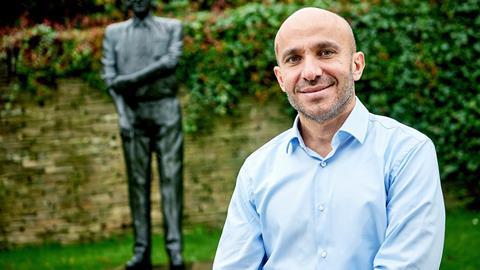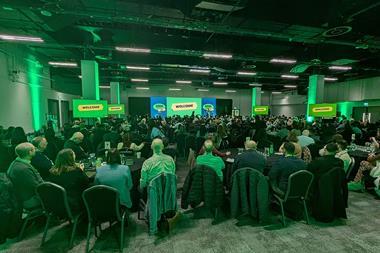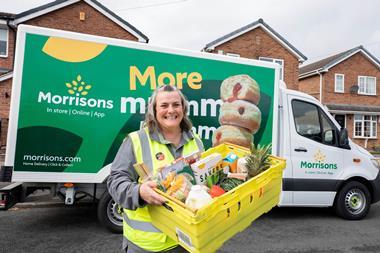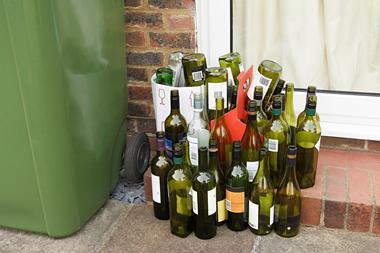Much like a publisher trying to drum up excitement about a new book launch, Rami Baitiéh used his first press conference as Morrisons CEO to tease out “the first few pages of the new chapter” at the retailer.
To be fair to the ex-Carrefour boss, who took charge of Morrisons in November, he has definitely whetted our appetites and, were this a novel, I would certainly be ordering a copy.
What those first few snippets involved was actually a lot of detail around what he has already been doing to get Morrisons firing again. At the centre of all this is the customer. Baitiéh may have broken the world record for the most times the word ‘customer’ was used in an hour, but it seems his plans are more than just words.
While he was keen to avoid any criticism of what has gone before him, as he alluded to a sixth quarter of continuous like-for-like sales growth, most observers would agree Morrisons’ performance has been sluggish of late, and had inflation been factored in those growth figures would look very different.
Indeed he did acknowledge “since the pandemic, Morrisons has not been on peak form, our market share has slipped slowly but consistently” and said “together with my colleagues, we are developing plans to address this and it begins with the customer, with colleagues, with suppliers and with the competition. If we listen carefully enough, customers and colleagues will show us the way.”
So far this has already translated into seven changes in the way Morrisons is being run.
Rami Baitiéh’s Magnificent Seven
- “We are not having any more major meetings without customers there. At every session we have a panel of customers. In the meeting, we ask them questions and listen to their views on Morrisons.”
- “Every store now has two customer roundtables a month, where customers are invited to challenge stores on range and service.”
- “I have a 30-minute online meeting with the top 100 people in the business every evening, six days a week. We look at what customers and colleagues are telling us. We are training hard, but to be the best you need to work at it.”
- “The voices of store managers and buyers are being amplified across the group. They are being fully empowered already and we are learning so much.”
- “I have my personal email address on the website. I invite customers to email me directly if their complaint is serious, or if it was not addressed by the normal process.”
- “We are becoming more organised and more forensic at looking at net promoter scores and taking feedback from checkout operators on complaints. We solve the individual complaints and we find the root cause too.”
- “I’m looking for greater personal responsibility from everyone for doing the right thing, and when this responsibility and accountability for customers spreads to every part of the business, I am confident the key customer satisfaction measures will improve.”
What this tells us is Baitiéh doesn’t want to waste time. Another example of this plan in action was that, upon receiving feedback from a customer in-store that a particular item was priced too high, Morrisons immediately worked with the supplier and the price was changed within an hour.
He also points to the turnaround in the Morrisons convenience business, which has gone from the administration of McColl’s in May 2022 to a profit with 18 months. “Convenience is a real bright spot,” he said. “The improvement since acquiring McColl’s from administration shows our ability to change and improve quickly. To listen to customers and to increase sales at an impressive rate, it’s been a real turnaround and that takes great leadership, outstanding execution and a supply chain that is fast and flexible.”
This kind of change could be the template for what he is planning for the core grocery business. He is planning to expand on those first few pages in March, and there will be many waiting with bated breath to see what the next few chapters have in store.

Follow Ronan on Twitter: @ronyhegs View full Profile
























No comments yet